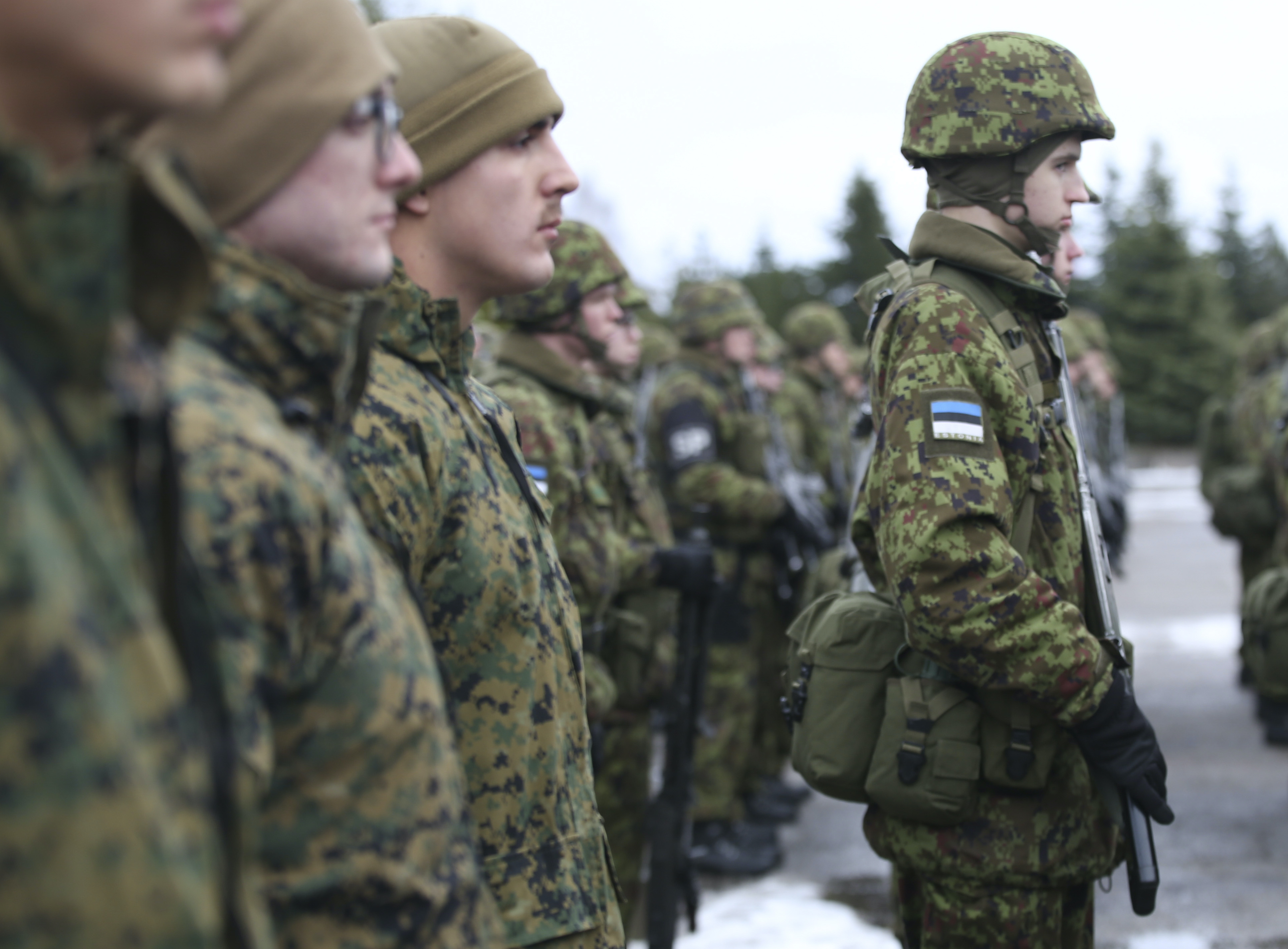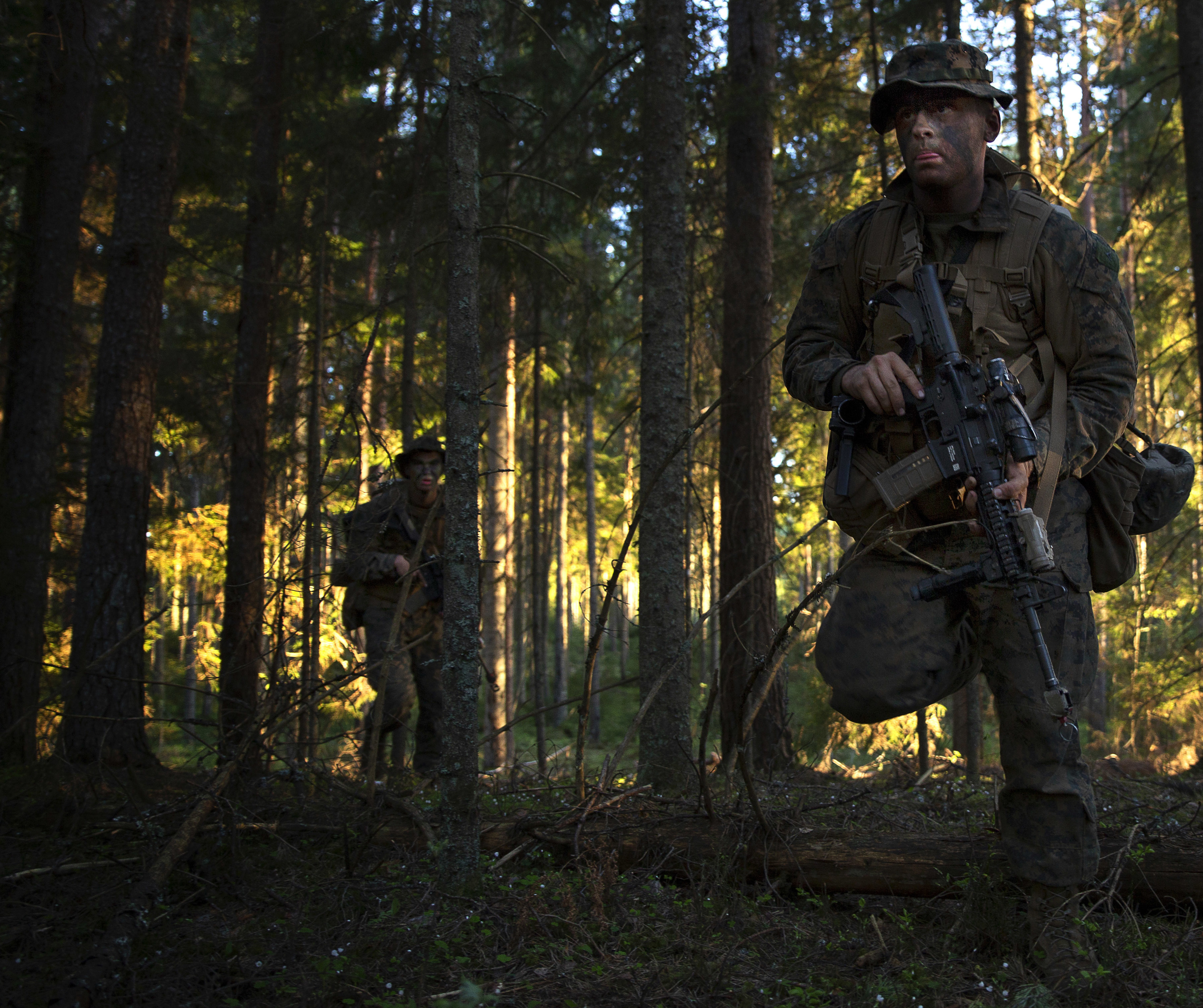
In explaining his tiny Baltic nation’s commitment to NATO membership by sending soldiers to Afghanistan and deploying ground forces to Iraq, the prime minister of Estonia told an audience earlier this week, “we try to punch above our weight.”
The lesson Estonians have learned from its history “is the danger of being alone,” Juri Ratas, Estonia’s prime minister, said during an appearance at the American Enterprise Institute.
Echoing the sentiment of Urmas Reinsalu, his government’s foreign minister who spoke recently at the Heritage Foundation, Ratas succinctly summarized his nation’s deployments and commitment to NATO, saying, “in together/out together.”
Ratas emphasized Estonia is a western nation, committed to liberal democracy. “The times we have failed to stand together,” he said, recalling the Soviet Union’s takeover over the three Baltic nations in World War II, “all have suffered, big and small.”
“Today, the world is becoming more dangerous – again,” he said. Threats include nations like Russia flaunting international law by aggressively attacking Georgia and Ukraine to launching cyber attacks capable of crippling a nation’s political and financial infrastructure.
Estonia endured a series of these cyber attacks on critical infrastructure in 2007. Since then, the nation has girded its defenses and now houses NATO’s cyber defense center of excellence to share lessons among allies of what new threats are emerging in this domain.
However, beefing-up cyber defenses is not enough, Ratas said. The threat morphs; “every second we have one cyber attempt” to breakthrough.
Russia’s cyber domain moves against Estonia, and the nation’s ground and air campaign against Georgia and Ukraine shook the transatlantic alliance’s post-Soviet assumptions of a peaceful continent. The aggression, especially after the takeover of Crimea from Ukraine, “brought collective defense back to the attention of NATO,” Ratas said. “Security is not done and history is not ended.”
During the past last seven years, Ratas said NATO military exercises have increased in nations bordering Russia, demonstrating the alliance’s capability and acting as a deterrent to further Kremlin aggression in southern or central Europe.
Estonia, which meets the alliance target of spending 2 percent of its gross domestic product on security, has been strongly encouraging its European neighbors to increase their defense budget to better defend the continent from aggressors, he said. President Donald Trump has frequently taken members of NATO to task for not spending sufficiently on their security.
NATO and the European Union have complementary values to the U.S. Ratas said, though he recently acknowledged members of the organizations have not always viewed threats the same way as officials in the U.S. view threats.

For example, the United States and several EU countries, including Iceland and the United Kingdom, are sharply divided over the danger Huawei poses to telecommunications security in the future. The American concerns center on the threat to military command and control links and potential for spying and sabotage.
Estonia shares the U.S. view, and Ratas said he’s eager to sign an agreement with Washington covering 5G technology, effectively blocking the Chinese telecommunications giant Huawei from gaining a foothold in his nation.
Estonia is concentrating its investments on critical infrastructure among the 12 nations in the “Three Cs Initiative,” Ratas said, referring to countries from the Baltic to the Adriatic to the Black seas. So far, the efforts have been looking at north-to-south transportation improvements into the center of Europe and also exploring possibilities for similar projects with Scandinavia.
“One can be pro-NATO, pro-American and pro-EU at once,” he said.





